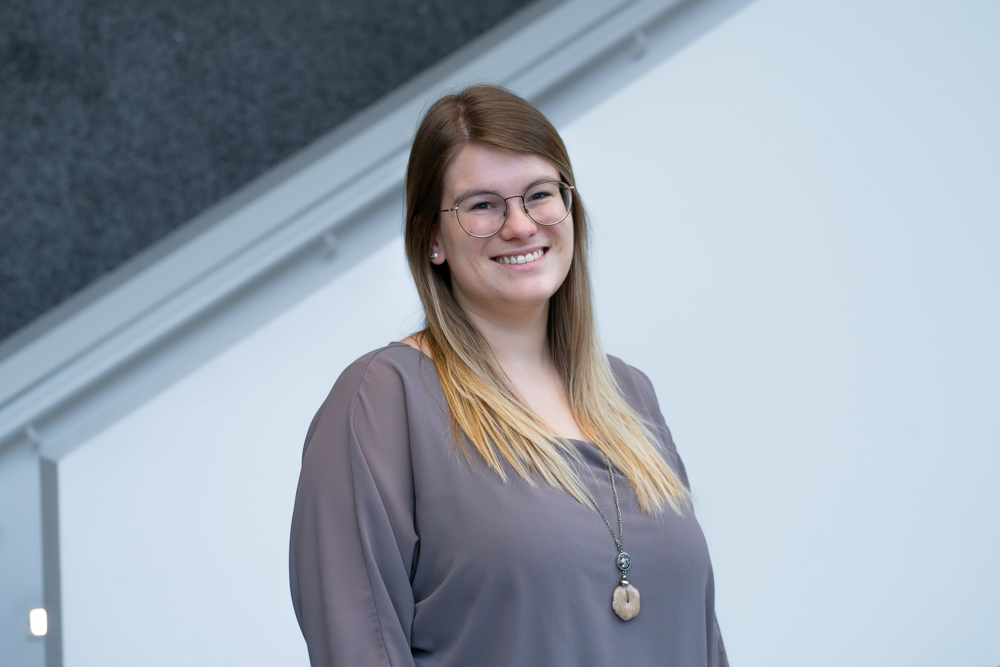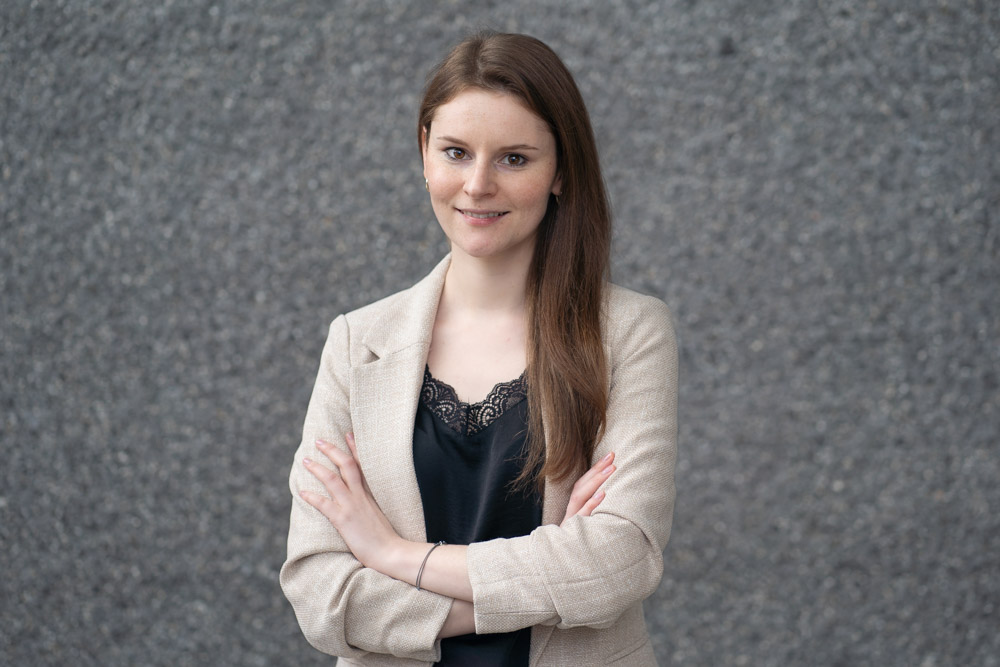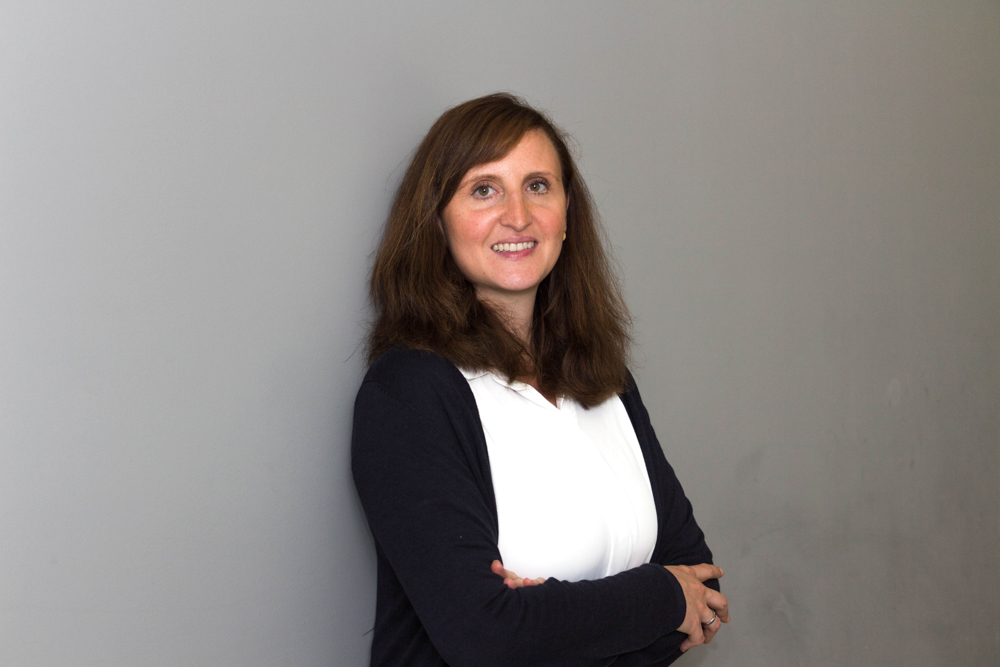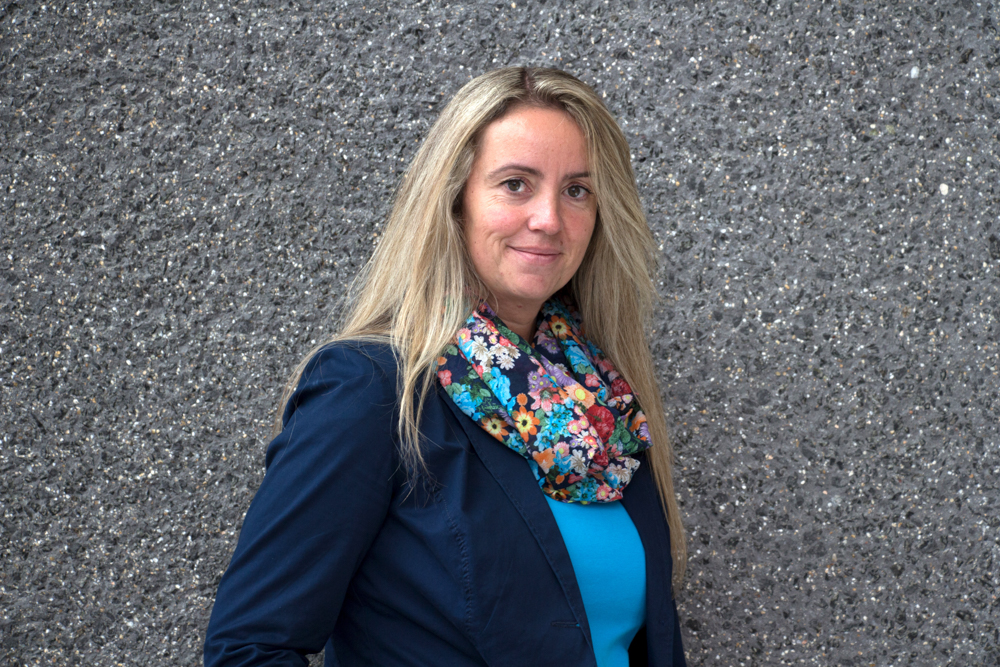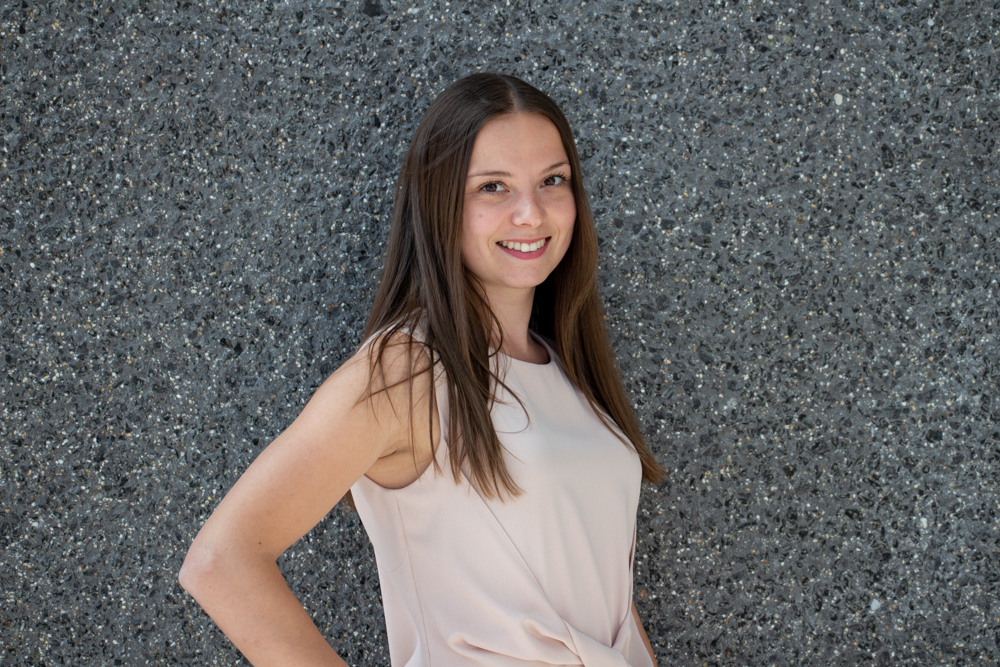dit students
you are pioneerining and vibrant
events
a study semester abroad
Studying abroad for one or two semesters is a great opportunity to stand out from your peers, improve your language skills, learn about different environments and cultures and make new friendships.
DIT has partner universities all over the world - here's an overview.
For inspiration, read reports from our students who have completed this exciting challenge.
These are your possibilities:
erasmus+ studies
Erasmus+ is a European scholarship programme, which supports, promotes and funds student mobility around Europe.
Through the Erasmus+ agreement, participating universities commit to:
- Not charge any additional tuition fees
- Support incoming students to find accommodation
- Recognise exam results earned by students in the relevant degree course at their home university
Additional guidance can be viewed under Erasmus+ then Erasmus+ studies and in the International Office.
study abroad at a partner university
Application documents:
Apply using Mobility Online:
After you've registered, please upload all application documents (CV with photo, motivational letter with your reasons for application, enrolment certificate and your DIT-transcript). If you are in the 1st semester, your transcript can be submitted later, deadline is the end of February.
Application deadline:
The annual deadline is the 15th February for an exchange semester in the following academic year (winter and summer semester).
In mid March all applicants will be informed via e-mail at which partner university they've been accepted, and which further documents need to be handed in to the International Office in B 210 to secure their place.
After the nomination through the university: submit Learning Agreement (external and internal) together with the application documents for your host university to the International Office.
Learning agreement:
independent study abroad or applying through an agency
You are completely free to choose any university, even as a "free mover student", i.e. outside of existing university cooperations. The International Office will be happy to help and guide you.
Please register as a "free mover student" on Mobility Online, because even if you apply independently you can receive financial support through grants or scholarship programmes.
The following documents must always be submitted:
- Notice for an independent application for studies abroad
- Letter of Acceptance from the host university
- Learning Agreement (see recognition of international credits)
organisational tip
A semester abroad should be planned at least one year in advance. Join our info sessions and preparational events for studying abroad (event flyer)!
an internship abroad
An internship abroad offers you the opportunity to apply the knowledge you have learned during your studies in practice and gain valuable intercultural experience at the same time. An internship abroad is therefore an enriching addition to your academic education and offers exciting insights into professional life.
The following options are available:
- Compulsory internship, which is completed abroad: There are certain requirements (e.g. a minimum duration) that must be adhered to. Please refer to the internship guidelines of your degree program.
- Voluntary internship
- Short voluntary internship (e.g. during the semester break): Please note that there is a minimum duration so that the internship can be financially supported.
- Longer voluntary internship (e.g. for a whole semester): May extend your studies but can still be beneficial.
- Graduate internship: The Erasmus+ scholarship program also funds internships abroad that are completed within twelve months of the end of your studies. You can find more information here.
Sources of information
All important information can be found on iLearn.
You can find internship advertisements on the DIT online job board and the iLearn course.
The following information events take place every semester:
- Introductory information event “Five steps to an internship abroad” or “Five steps to an internship abroad”
- Seminar „Englische Bewerbungsunterlagen erstellen“ (is only held in German)
After attending the introductory event, you can arrange a personal consultation with Romy Geiger to clarify individual questions. You can also email your English CV to Romy Geiger for a CV check.
Funding opportunities
Internship within the Erasmus+ area
If you are completing an internship of at least 60 days in an EU country, Iceland, Liechtenstein, Norway or Türkiye, you can apply for an Erasmus+ scholarship at the International Office. You can find more information on how to apply at Erasmus+ Internship.
Internship outside the Erasmus+ area
For an internship outside the EU, you can apply for our internal DIT scholarships or external scholarship programs (e.g. from the DAAD).
You can find more information at Funding a semester abroad.
summer school
Apart from studying abroad or doing an internship abroad it is also possible to visit a summer school (usually 3-8 weeks) in a foreign country
The summer school programme more than often combines specialised courses, language courses and also information regarding the country itself and it's culture. There may be excursions, too. It does not substitute the semester abroad but is a great additional chance to go abroad.
View your weekly Karrierenewsletter to see current offers, under No.15 "Summer Schools / language courses".
funding a semester abroad
If you are an enrolled DIT student, there are several opportunities to partially finance your semester or internship abroad through a scholarship (preferably outside Europe).
Financial support for stays abroad within Europe is available through the Erasmus+ program.
dit scholarships
The Bavarian State Ministry of Sciences, Research and the Arts supports advanced students with scholarships to drive the internationalisation of its higher education forward. Students must be attending their first bachelor or master degree course.
The benefits are granted as scholarships or as once-off study grants (for foreign students) or as an allowance for the additional living costs arising from the stay abroad (for German applicants). No allowances are granted for language courses abroad or for tuition fees charged by foreign universities. Collaboration and internships with universities in foreign countries are strongly encouraged. The extent of the support is determined individually and depends entirely on individual requirements. It is between 100 and 615 Euro per month. In cases of special hardship, once-off study grants are possible (minimum rate 250 Euro).
Eligible students:
- Highly qualified foreign students enrolled at a Bavarian university
- German students during a semester abroad within the framework of their studies at a Bavarian university.
University checks:
- The financial requirements of the applicant (there is no requirement, if the applicants fulfil the preconditions in accordance with § 8 BAföG or have resources of more than 600 € per month)
- Professional aptitude (successful and advanced professional study)
- Possibly the expert opinion of a Bavarian university professor
- Significance of the study project/stay abroad, duration (description of about one page)
There is no entitlement to support, as resources are available only to a limited number of recipiants each year.
The scholarship programme PROMOS promotes the overseas mobility of DIT-students studying abroad or completing an internship abroad with scholarships and/or transportation cost allowances for short term stays (up to 6 months).
The foundation supports DIT students during a study or internship semester abroad by a one-off allowance.
DIT Scholarship Application Procedure
As all the scholarship programmes outlined here are administered by the International Office, you only need to submit ONE application.
You have to apply via Mobility Online.
A step-by-step manual to guide you through the application process can be found here.
Application deadline for winter semester is April 30th and for summer semester October 31st.
Required documents:
- Passport-sized photo
- CV
- Enrollment certificate
- Motivational letter
- Current transcript (mark sheet)
- Financial needs calculation (available for download via Mobility Online)
- Application form (to be generated via Mobility Online)
- Internship contract, if applicable
other scholarships
This financial support programme is for German or international students who are fully-integrated and have their long-term perspectives in Germany (e.g. European citizens or students with long term residential visas). Grants are based on personal assets, wages earned and parental or partner income.
- More information can be found (in German) at www.bafoeg.de.
This initiative supportes exchange with countries in Central-, Southeast- and Eastern Europe and the CIS countries
- More Information about Go East
- Information can be found on the KfW-Förderbank website.
Scholarships for internship semesters in non-German speaking countries around the world.
The Deutsche Gesellschaft für Internationale Zusammenarbeit will support you to find a placement, apply for scholarships, or get reimbursed for business trips.
- Scholarships for a study semester in the USA including travelling costs
- Apply to the international office or via the Fulbright Commission website
View the Deutsche Stiftungen website.
The Bavarian university centre for China (BAYCHINA)
BAYCHINA is a service facility for all public universities in Bavaria. On the one hand, it is aimed at students in Bavaria and China who are interested in or enrolled in a course of study abroad or in an exchange programme and have questions or suggestions regarding this. On the other hand, BayCHINA is an institution which fosters and promotes specific exchange between lecturers from both partnership institutions, collaboration in research and teaching in general, as well as contacts with Chinese institutions and scientists.
BayChina is the contact and the service centre for the university and research cooperation between China and Bavaria.
BayFrance (Franco-Bavarian University cooperation centre) is the contact and the service centre for the university and research cooperation between France and Bavaria.
Baylat aims to intensify cooperation in research and teaching with the universities in Eastern Europe. It awards a wide variety of grants to Bavarian students and university members of Eastern European universities.
BayHost is the Bavarian Academic Centre for Central, Eastern and Southeastern Europe. All details about scholarships programmes are on the website.
The Bavarian-Indian Centre for Business and University Cooperation has been set-up in order to coordinate and promote the university cooperation between Bavaria and India.
erasmus+
Erasmus+ is a European scholarship programme, which supports, promotes and funds student mobility around Europe. 
Students who join the Erasmus+ programme, study for at least 3 months or complete an internship for at least 2 months in another European country.
The programme guarantees that the period spent abroad is recognised by their home university on return, as long as they abide by the agreed conditions and terms. Through Erasmus+, students do not pay additional tuition fees to the host university.
The European Commissions' Student Charter highlights your rights and obligations and tells you what you can expect from your sending and receiving organisationsat each step of your Erasmus+ experience.
Erasmus+ is a European scholarship programme, which supports, promotes and funds student mobility around Europe. Through bilateral agreements, universities involved are committed to the following principles:
- To waive tuition fees
- To help and support students in finding local accommodation
- To facilitate the recognition of academic achievements obtained for the respective study programmes
You can get advice and information from the International Office.
Requirements
All enrolled DIT students can take part in this programme, their nationality is irrelevant. Participation is only possible with partner universities that have a valid Erasmus + contract in place with DIT.
Country classifications and funding rates
|
Austria, Belgium, Denmark, Finland, France, Ireland, Iceland, Italy, Liechtenstein, Luxemburg, Netherlands, Norway, Sweden |
€600 / 30 days |
|
Bulgaria, Croatia, Cyprus, Czech Republic, Estonia, Greece, Hungary, Latvia, Lithuania, Malta, North Macedonia, Poland, Portugal, Romania, Serbia, Slovakia, Slovenia, Spain, Türkiye |
€540 / 30 days |
The UK is no longer part of the Erasmus+ programme due to the Brexit.
Additional funding
Equal and fair access to Erasmus+ are key priorities in the new generation of the programme. Certain target groups can therefore receive a monthly top-up of €250 on top of the standard Erasmus+ rates. This applies to
- first-time academics,
- working students,
- students with disabilities,
- students with chronic illnesses and
- students with children.
More detailed information on the funding guidelines can be obtained from the International Office.
Sustainability
Another goal of the current Erasmus+ generation is to make the exchange program "greener" and promote environmentally conscious travel.
Students who use a low emission means of transport to travel to the host country can receive additional Erasmus+ funded travel days and a higher travel allowance (see “Travel allowance and travel days”).
The requirement is that at least 50% of the total distance (outward and return journey combined) must be covered by a low emission means of transport (e.g. train, bus, bicycle or carpool).
Travel allowance and travel days
From project year 2025 onwards, all participants will receive a travel allowance and, if applicable, additionally funded travel days.
|
Travel distance |
“Standard travel” |
“Green travel” |
|
10 - 99 km |
€28 + 0 travel days |
€56 + 0 travel days |
|
100 - 499 km |
€211 + 0 travel days |
€285 + 2 travel days |
|
500 - 1,999 km |
€309 + 0 travel days |
€417 + 4 travel days |
|
2,000 - 2,999 km |
€395 + 0 travel days |
€535 + 6 travel days |
|
3,000 - 3,999 km |
€580 + 0 travel days |
€785 + 6 travel days |
|
4,000 - 7,999 km |
€1,188 + 2 travel days |
€1,188 + 6 travel days |
|
8,000 km or more |
€1,735 + 2 travel days |
€1,735 + 6 travel days |
The travel allowance and number of travel days depend on the distance to the host institution and are calculated automatically using the EU's Erasmus+ Distance Calculator (Deggendorf is always the starting point).
As the costs for sustainable travel are often higher and the travel time is usually longer, an increased travel allowance is granted if a “green” means of transport is used for the trip.
A total of up to six travel days for “green travel” and up to two travel days for non-environmentally friendly travel can be awarded.
Please note: The travel days listed above do not depend on your individual travel plans (fixed number of days per category).
In case your trip (whether green or not) requires more travel days than those listed above for your distance category, you can contact the International Office for an individual review of your travel plans and documents.
Duration of funding
When students stay abroad for one semester, they are funded for a maximum of 120 days. When they stay for two semesters, they are funded for a maximum of 240 days.
It is possible to receive up to 12 months of Erasmus+ funding (studying and/or internships) per study cycle. A renewed funding for the master level is possible.
Application documents
You can submit your application digitally and without paper via Mobility Online. After registration, applicants receive an email containing a link and login details. The applicant then must follow the link and enter a password, before uploading the following application documents:
- CV
- Transcript of Records/ DIT mark sheet
- Photo
- Letter of motivation
- Enrolment certificate
Application deadline
The annual application deadline is 15.02. to participate in the programme either in the winter semester or the summer semester of the following academic year. Around mid to the end of March, all applicants receive an email, notifying them of their accepted place at a partner university and also of any other information or documents required. All further organizational matters can be viewed in Mobility Online.
Required documents for Erasmus+ study
- Grant Agreement
- Digital Learning Agreement
Selection criteria
- A complete and punctual application
- Vacant study places must be available at the host university
- Applicant must be suitable for the host university and credit transfer should be possible
- Good grades and language competence (good knowledge of the language of instruction and basic knowledge of local language)
- Appropriate motivation and voluntary work
On return
After your return, please enter a detailed experience report in Mobility Online for future outgoings students.
Please send your Letter of Confirmation and your Transcript of Records from the host university to your contact person at the International Office.
You will also be asked to complete a short survey about your stay via the European Commission's Mobility Tool. You will automatically receive an invitation from the EU by email at the end of your stay.
If you are completing an internship in an EU country or in Iceland, Liechtenstein, Norway or Türkiye that is 60 days or longer, you are eligible to apply for the Erasmus+ scholarship.
For information about the Erasmus+ Scholarship program, you can contact Romy Geiger.
Advantages of participating in the Erasmus+ internship program
- Students receive an EU internship contract between the university, the company and the student (for compulsory internships)
- Students receive academic recognition of the internship
- Students receive support during the internship through a contact person at both the home university and in the company
- Students receive cultural, linguistic and organizational support in preparation for the internship
- Students receive funding to cover the extra costs of living abroad
- Special grants for students with fewer opportunities and sustainability
- Scholarship rates by country group
Eligibility requirements
- Your internship must last at least 2 months (60 days) and be completed in an Erasmus+ country.
- You must be enrolled at DIT for the entire duration of your internship (except for graduate internships).
- A graduate internship after the end of your studies can also be funded with Erasmus+. The requirement is that you apply while you are still enrolled at DIT and that the internship is completed within 12 months of the end of your studies.
- Your internship salary or financial situation are not relevant!
- Internships in EU institutions and organizations, national diplomatic authorities, or organizations which manage EU programs are not eligible for funding.
- Internships that are carried out remotely are also not eligible for funding.
The funding duration depends on the funds available. Preference is given to compulsory internships.
Country classifications and funding rates
|
Austria, Belgium, Denmark, Finland, France, Ireland, Iceland, Italy, Liechtenstein, Luxemburg, Netherlands, Norway, Sweden |
€750 / 30 days |
|
Bulgaria, Croatia, Cyprus, Czech Republic, Estonia, Greece, Hungary, Latvia, Lithuania, Malta, North Macedonia, Poland, Portugal, Romania, Serbia, Slovakia, Slovenia, Spain, Türkiye |
€690 / 30 days |
The UK is no longer part of the Erasmus+ programme due to the Brexit.
1 month = 30 days, minimum duration: 60 days
Additional funding
Equal and fair access to Erasmus+ are key priorities in the new generation of the programme. Certain target groups can therefore receive a monthly top-up of €250 on top of the standard Erasmus+ rates. This applies to
- first-time academics,
- working students,
- students with disabilities,
- students with chronic illnesses and
- students with children.
More detailed information on the funding guidelines can be obtained from the International Office.
Sustainability
Another goal of the current Erasmus+ generation is to make the exchange program "greener" and promote environmentally conscious travel.
Students who use a low emission means of transport to travel to the host country can receive additional Erasmus+ funded travel days and a higher travel allowance (see “Travel allowance and travel days”).
The requirement is that at least 50% of the total distance (outward and return journey combined) must be covered by a low emission means of transport (e.g. train, bus, bicycle or carpool).
Travel allowance and travel days
From project year 2025 onwards, all participants will receive a travel allowance and, if applicable, additionally funded travel days.
|
Travel distance |
“Standard travel” |
“Green travel” |
|
10 - 99 km |
€28 + 0 travel days |
€56 + 0 travel days |
|
100 - 499 km |
€211 + 0 travel days |
€285 + 2 travel days |
|
500 - 1,999 km |
€309 + 0 travel days |
€417 + 4 travel days |
|
2,000 - 2,999 km |
€395 + 0 travel days |
€535 + 6 travel days |
|
3,000 - 3,999 km |
€580 + 0 travel days |
€785 + 6 travel days |
|
4,000 - 7,999 km |
€1,188 + 2 travel days |
€1,188 + 6 travel days |
|
8,000 km or more |
€1,735 + 2 travel days |
€1,735 + 6 travel days |
The travel allowance and number of travel days depend on the distance to the internship institution and are calculated automatically using the EU's Erasmus+ Distance Calculator (Deggendorf is always the starting point).
As the costs for sustainable travel are often higher and the travel time is usually longer, an increased travel allowance is granted if a “green” means of transport is used for the trip.
A total of up to six travel days for “green travel” and up to two travel days for non-environmentally friendly travel can be awarded.
Please note: The travel days listed above do not depend on your individual travel plans (fixed number of days per category).
In case your trip (whether green or not) requires more travel days than those listed above for your distance category, you can contact the International Office for an individual review of your travel plans and documents.
Application documents
You can apply for an Erasmus+ scholarship for your internship via Mobility Online.
There you can upload the required application documents:
- CV with photo,
- Transcript of Records
- Motivational letter,
- Certificate of enrolment,
- Internship contract (can be handed in later)
Selection criteria
- Complete application documents
- Recognised internship (voluntary internships may be funded as well, if they are relevant to the programme of study)
- Average grades and language skills (good command of the working language, basic knowledge of the local language)
- Motivation for an internship abroad
Scholarship approval
After the scholarship approval, a Learning Agreement for Traineeships and a Grant Agreement must be submitted.
On return
At the end of your Erasmus+ internship, there are a few organizational points to take care of.
As part of the Learning Agreement “After the Mobility”, your internship company must confirm the final duration of the internship.
After your return, please enter a detailed experience report in Mobility Online for future outgoings students.
You will also be asked to complete a short survey about your stay via the European Commission's Mobility Tool. You will automatically receive an invitation from the EU by email at the end of your stay.
The second scholarship installment can only be paid out to you once these steps have been completed.
Compulsory language test for Erasmus+ students and interns
The European Commission has provided an online language test for EN, ES, FR, IT, NL. For ALL students / interns, this must be completed in the working language / language of instruction both before the start of mobility and after the end of the stay. However, it is not a selection criterion for funding in the Erasmus+ program and does not apply to native speakers. Once the participants to be funded in Erasmus+ have been selected, the implementation of the language test should serve as a placement test to document their current language level.
Erasmus+ students or interns can be licensed by the home university for a free online language course. The International Office issues licenses after checking the documents and language skills. In addition, language courses subject to a fee can be subsidized BEFORE starting your studies or internship abroad. Funding is only possible if sufficient financial resources are available.
English courses are not funded, only in exceptional cases. If you are interested, please contact the International Office
This project has been funded with support from the European Commission. DIT web administrators are solely responsible for the content of this publication; the Commission is not responsible for any use which may be made of the information.
More details and support can be viewed at :
Deutschen Akademischen Austauschdienst
Nationale Agentur für EU-Hochschulzusammenarbeit 
Kennedyallee 50
53115 Bonn
Germany
Tel.: +49(0)228/882-8877
Fax: +49(0)228/882-555
E-Mail: erasmusdaad.de
Homepage: www.eu.daad.de
special circumstances during erasmus+ trip
For people with disabilities
Useful information on universities for disabled people from the European Agency for Development in Special Needs Education: www.european-agency.org.
Students with children
Students who take their child (s) with them to a Erasmus + study visit to a programme country and are single parents there during Erasmus + mobility can receive a special grant as a lump sum. The maximum monthly funding amount is specified by three country groups.
Partner universities
- PDF list of all partner universities
- Application information about your study semester abroad
preparing to go abroad
You want to widen your horizons and go on an internship or study semester abroad, but are unsure of what steps to take?
Download the "how to apply for a semester abroad" fact sheet to see exactly how to organize your work or study adventure away from home.
- Detail about the benefits of the ISIC card
- The ISIC is valid for one year
- The card costs 15 Euros.
How do I apply for an ISIC?
Directly on the www.isic.de website. Follow the "get your card" link.
Literature
The library has many useful books all about working or studying abroad, to be found on the inbetween floor between the 1st and 2nd floors.
Insurance
Please speak to your own insurance company, as the following enquiries need to be answered:
- Is my present insurance valid in my chosen country for my semester abroad?
- Is an additional insurance recommended to cover all aspects of travelling abroad?
After you've consulted your insurance company, you can decide whether additional private accident and liability insurance is required.
transfer of credits
The recognition of subjects and the conversion of grades for academic achievements abroad are important and can be easily arranged using the forms below. If you have any questions, you can always contact the people mentioned below! According to the framework examination regulations (§17 Abs. 3), examination achievements from abroad that have already been completed at the Deggendorf Institute of Technology (DIT) (including failed attempts) cannot be recognised.
Contact people for all courses of study:
- Chairman of the examination board: Prof. Dr. Stefan Götze
- Grading conversion: Iris Reul
- Grading conversion table (valid from 01.01.2018)
Necessary forms:
- Internal Learning Agreement/ Proposal for course recognition from abroad
- Digital Learning Agreement in Mobility Online (ERASMUS+ students)
people of contact for the individual study programmes
Management in Health, Social and Rescue Services
- International representative: Prof. Dr. Thomas Geiß
- Recognition of other courses: professors of the course of studies
Physician Assistant
- International representative: Prof. Dr. med. habil. Thiha Aung
- Recognition of all courses: consultation only with the international representative
Physiotherapy Majoring in Kinesiology (cooperative studies)
- International representative: Prof. Dr. Stephanie Hecht
- Recognition of other courses: professors of the course of studies
Applied Computer Science
- International representative: Prof. Rui Li
- Recognition of other courses: professors of the course of studies
Artificial Intelligence
- International representative: Prof. Rui Li
- Recognition of other courses: professors of the course of studies
Cyber Security
- International representative: Prof. Rui Li
- Recognition of other courses: professors of the course of studies
Business Informatics
- International representative: Prof. Rui Li
- Recognition of other courses: professors of the course of studies
Applied Economics
- International representative: Prof. Dr. Marcus Dittrich
- Recognition of all courses: consultation only with the international representative
Organisational and Economic Psychology
- International representative: Prof. Dr. Marcus Dittrich
- Recognition of other courses: professors of the course of studies
Business Administration
- International representative: Prof. Dr. Thomas Meier
- Recognition of all courses: consultation only with the international representative
International Management
- International representative: Prof. Dr. Martina Heigl-Murauer
- Recognition of all courses: consultation only with the international representative
Strategic and International Management
- International representative: Prof. Dr. rer. pol. Johann Nagengast
- Recognition of all courses: consultation only with the international representative
Tourism Management
- International representative: Prof. Suzanne Lachmann
- Compulsory elective subjects (AWP) and language courses: Julia Vollbrecht
- Compulsory elective subjects (FWP): Prof. Suzanne Lachmann
- Recognition of other courses: professors of the course of studies
Civil and Construction Engineering
- International representative: Prof. Parviz Sadegh-Azar
- Recognition of other courses: professors of the course of studies
Construction Management
- International representative: Prof. Dr.-Ing. Parviz Sadegh-Azar
- Recognition of other courses: professors of the course of studies
Civil and Environmental Engineering
- International representative: Prof. Dr.-Ing. Andrea Deininger
- Recognition of other courses: professors of the course of studies
Digital Health
- International representative: Prof. Dr. Georgi Chaltikyan
- Recognition of all courses: consultation only with the international representative
Health Informatics
- International representative: Prof. Dr. Thomas Spittler
- Recognition of all courses: consultation only with the international representative
Healthy and Sustainable Buildings
- International representative: Prof. Dr. Michael Laar
- Recognition of other courses: professors of the course of studies
Industrial Engineering
- International representative: Ibrahim Bader
- Recognition of all courses: consultation only with the international representative
International Tourism Management / Health and Medical Tourism
- International representative: Prof. Dr. Erik Lindner
- Recognition of all courses: consultation only with the international representative
Applied Research in Engineering Sciences
- International representative: Prof. Dr.-Ing. Werner Bogner
- Recognition of other courses: professors of the course of studies
Electromobility, Autonomous Driving and Mobile Robotics
- International representative: Prof. Nikolaus Müller
- Recognition of other courses: professors of the course of studies
Electrical Engineering and Information Technology
- International representative: Prof. Dr. rer. nat. Martin Jogwich / Prof. Dr. Nikolaus Müller (nur Speed Up)
- Recognition of other courses: professors of the course of studies
Media Technology (Bachelor)
- International representative: Prof. Sabine Wiesend
- Recognition of all courses: consultation only with the international representative
Media Technology (Master)
- International representative: Prof. Sabine Wiesend
- Recognition of other courses: professors of the course of studies
Mechanical Engineering
- International representative: Prof. Dr.-Ing. Giuseppe Bonfigli
- Recognition of other courses: professors of the course of studies
Mechatronics
- International representative: tba
- Recognition of other courses: professors of the course of studies
Mechatronical und Cyber-Physische Systems (in Deggendorf)
- International representative: Prof. Dr. Stefan Scherbarth
- Recognition of all courses: consultation only with the international representative
Technical Design
- For all design subjects: Prof. Kostas Medugorac
- For technical subjects: professors of the course of studies
Applied Sports Science
- International representative: Prof. Dr. Jens Martin
- Recognition of all courses: consultation only with the international representative
Applied Sports Science with Focus on Interprofessional Care in Sports
- International representative: Linda Zeindl
- Please send the completed internal Learning Agreement and the course descriptions to the International Office. After the documents have been checked, they will be forwarded to your international representative.
Artificial Intelligence for Smart Sensors and Actuators
- International representative: Prof. Dr. Tobias Schaffer
- Recognition of all courses: consultation only with the international representative
Interdiciplinary Engineering Sciences
- International representative: Prof. Dr. Christian Wilisch
- Recognition of all courses: consultation only with the international representative
Mechatronics and Project Management for Digital Production
- International representative: Prof. Dipl.-Phys. Jürgen Wittmann
- Recognition of other courses: professors of the course of studies
Technology Management
- International representative: Prof. Dr. Peter Schmieder
- Recognition of other courses: professors of the course of studies
Industrial Engineering
- International representative: Prof. Dr. Thomas Stirner
- Recognition of other courses: professors of the course of studies
approach
Fill in the External Learning Agreement or ERASMUS+ Learning Agreement and the Internal Learning Agreement and have them signed by the respective lecturers and the international representative. Take detailed course descriptions with you and make an appointment in advance.
Students of Business Administration, International Management and Applied Economics only need to make an appointment with the international representative.
Submit these Learning Agreements to the International Office (B 210). The External Learning Agreement is often required very early (depending on the deadline of the partner university), the Internal Learning Agreement only needs to be submitted to the International Office BEFORE departure (no fixed deadline).
Record course changes in the external Learning Agreement or ERASMUS+ Learning Agreement "Changes/Changes" as well as internal Learning Agreement.
Clarify information about course changes in advance with the responsible professor/expatriate by e-mail and send a copy to the International Office.
Fill in the area "Änderungen/Changes" in the Learning Agreement (external and internal) and send the Learning Agreement including course descriptions to the International Office (e-mail). The International Office will forward the Learning Agreement.
Course changes should be communicated to the International Office and the International Officer within four weeks and all changes should be recorded in the Learning Agreement (external and internal).
The Centre for Studies will carry out the grade conversion as soon as the certificate from the partner university is available. Unless the examination board has decided otherwise, the table recommended by the examination board (see above) is used for grade conversion. Intermediate grades are interpolated linearly.
Recognised achievements are recorded in the grading sheet if they are module grades; for submodule achievements, a transcript of records is issued by the Centre for Studies.
testimonials
DIT students who completed a stay abroad during their studies have summarised their experiences in a report to give others an insight into their stay abroad. Use the experience reports of other students to get an idea of what a stay abroad can look like.

